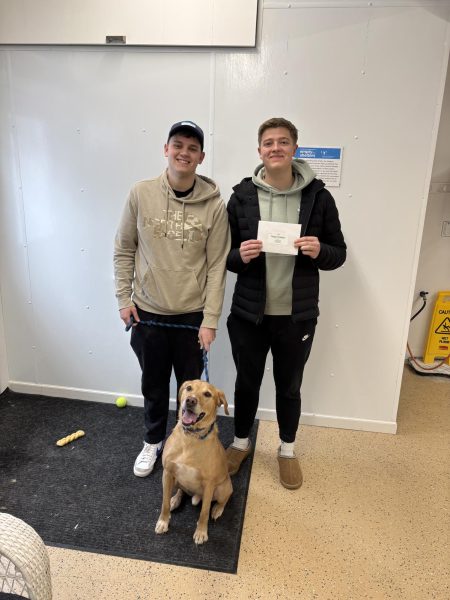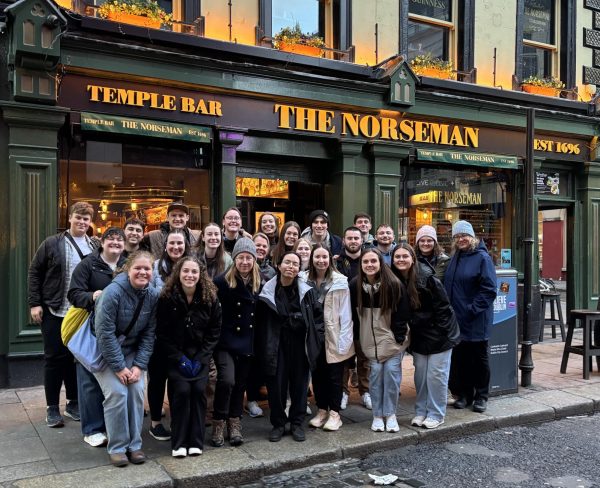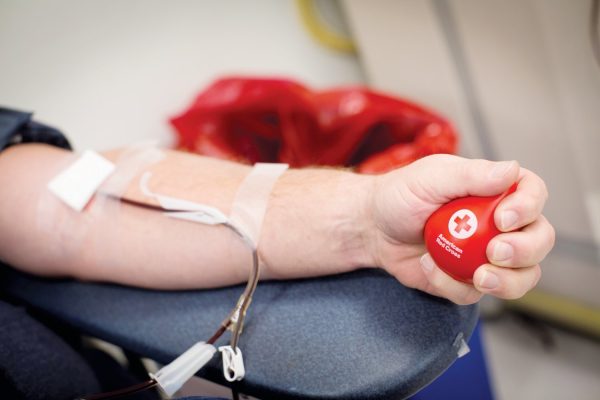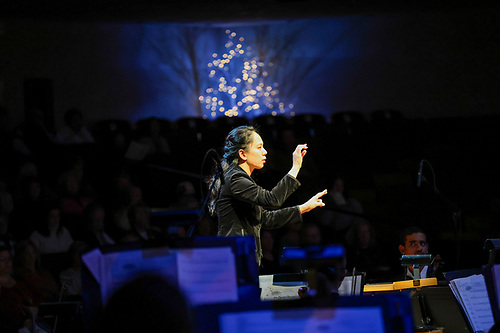Luther College Counseling Services Offer Mindfulness Training Through Koru Mindfulness
In the fall of 2018, Luther College Counseling Services implemented the Koru Mindfulness program, a four-week project structured to teach a variety of meditation and mindfulness skills. The program is specifically designed for college students and their busy schedules. According to Luther Counselor Stu Johnston, Luther has trained approximately 200 students through Koru.
Koru Mindfulness was developed by two psychiatrists at Duke University several years ago. It differs in some aspects from other mindfulness programs because it teaches the quality of being aware of the present, as well as stress management skills. The goal of the program is to be able to increase skills related to mindfulness and meditation. Johnston launched Koru Mindfulness at Luther two years ago.
“Several years ago I’ve been looking at the area of mindfulness and meditation,” Johnston said. “I started to do some professional reading, and then I started my own meditation practice. I found it to be really helpful, and in the reading I was doing [I found that] meditation mindfulness was offered on other college campuses.”
Koru Mindfulness is a highly structured, four-week class that includes homework of mindfulness logs and 10 minutes of mindfulness practice. For students who participate in Koru, one of the first things they do is download the Koru app, which is paid for by Counseling Services. Even after the students complete Koru, they continue to have access to that app.
An attendee of the most recent Koru Mindfulness seminar, Jessi Labenski (‘22) appreciated the seminar’s welcoming environment.
“It’s a very accepting space,” Labenski said. “I’d never actually met Stu before, but he’s really, really fantastic just at making us all feel included. It’s a safe place to share how we’re feeling about the meditation practices and how they’re working for us.”
Throughout the four weeks, students participating in Koru are taught a number of different practices, including various types of breathing, a body scan, different types of meditations, and mindful eating. Johnston believes that the Koru program has been hugely impactful in creating community during the COVID-19 pandemic, and in learning to take a step back.
“[The participants] also learn that this [mindfulness] is [a] practice, and that sometimes we step away from the practice and that’s okay; that’s part of being human,” Johnston said. “And the practice is always there waiting for you and that practice will always welcome you back. I think when people come together in community like this, they realize that’s what they have in common with each other, that we are all trying to support each other and work on our overall well-being.”
Director of Counseling Services Meg Hammes (‘91) shared her knowledge about the benefits of practicing mindfulness, especially during a global pandemic.
“I think right now the benefits of meditation [and] the benefits of that then helping with increasing mindfulness are huge,” Hammes said. “We are experiencing at an unprecedented level an unprecedented event, and there’s a lot of grief, there’s a lot of loss, there’s a lot of worry and uncertainty. I believe that a mindfulness-based practice in your life can help reduce some of that worry, some of that anxiousness … and it helps us to be able to not get lost in those thoughts, and to be able to be more present with our current situation.”
The Koru Mindfulness workshop is held on Zoom at 4 p.m. every week on Wednesday from February 10 to March 3 for students who wish to train in mindfulness and meditation. Those interested in Koru Mindfulness can also check out the book The Mindful Twenty-Something, written by Holly Rodgers. It addresses one of Luther Counseling Services’ goals, which is to make mindfulness as accessible as possible so students can participate without spending any money. The book is available as an ebook in Preus Library.
“[The COVID-19 pandemic] is a real threat to our health and safety, and [Koru Mindfulness] is not to forget about that threat that we all experience,” Johnston said. “When we engage in a mindfulness practice it can help us center ourselves to be present for what’s happening now.”





